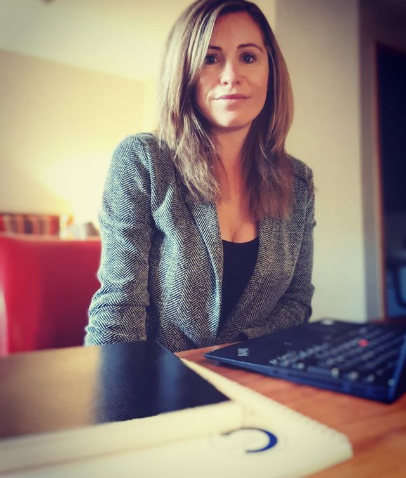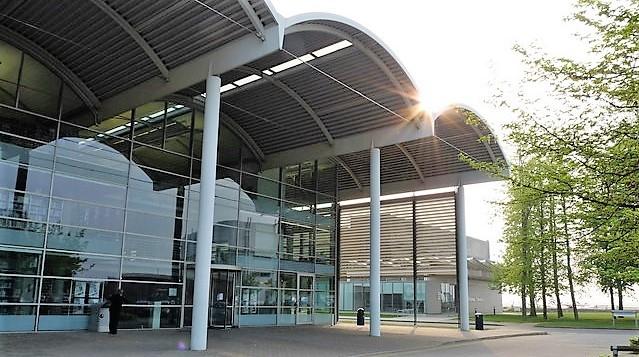COVID-19: Supporting our community
29/04/2020

These are unprecedented times. The coronavirus (COVID-19) pandemic has limited where we can go, what we can do and who we can see. We don’t know what is ahead, but we can stay focused, and trust in the guidance from our Government and healthcare professionals as they work to protect the most vulnerable in our society.
As always at Cranfield, our priority is the welfare of our community, including our students, our staff, alumni, partners, and those in the local area.
Our campus looks very different from how it did a few weeks ago. Following Government guidance, only University staff that absolutely need to be are on site. Lectures and learning materials are being provided online to allow everyone to observe social distancing. Most non-residential facilities on campus are temporarily closed, including our libraries, computer labs, students’ association, places of worship and eateries. Our mailroom and security desk are open but with reduced staff, and all of our student services have been moved online.

Many of our students have gone home. Others have stayed on campus or are living nearby. Wherever they are, we are determined that we continue to support them in completing their course.
Our first priority is of course their health and wellbeing. The University is monitoring the advice on coronavirus very closely and receiving regular guidance from Public Health England. We have asked our students to observe social distancing and to practice good hygiene. Staff and students who are experiencing symptoms are being supported to follow the advice on the NHS website or call 111.
We are continuing to provide essential maintenance and other key services. Our residences, Mitchell Hall and Budgens supermarket are still open to support students living on campus. Reggies restaurant is providing a takeaway service, and Uno Bus is providing our students free travel to Milton Keynes to shop for food. We have asked anyone who is self-isolating to let us know so we can do everything we can to support them, and have provided specific advice for students living in different residences on how long they will need to isolate for if they or someone they live with has symptoms of the virus.
We are not just supporting our students with their physical fitness; we also want to look after their mental health, as we understand that long periods of social distancing can have a big impact on people’s wellbeing. Our Student Advice Centre is still providing a safe, confidential and non-judgemental space where students can discuss their concerns – albeit via virtual means at the moment. All our students are eligible for free counselling and can also access Big White Wall, a free 24/7 online support service.
Our libraries and careers service are continuing online and over the phone, and are busy helping students. The careers team is particularly focused on providing advice on job searching during a global pandemic and how to pass virtual interviews. Our IT team is working hard to make sure all students have access to the services they need to complete their work, including setting up computers in available spaces for those who don’t have a PC or laptop at home. A printing service has been set up at the entrance to campus, and is being overseen by our security team.
Some of the ways in which we are working may have changed over the past few weeks, but our commitment to first-class postgraduate education has not changed. We have had to make some very complex decisions very quickly, and we are doing everything we can to support students that want to finish their course to get their qualification on time by keeping in regular contact and offering lots of ways in which they can talk to us.
Academic and support staff are keeping in touch with students by email, telephone, Skype, MS Teams, Zoom and social media. Group projects have either been adapted so they can be completed remotely or replaced with other types of assessment, and we have already carried out the first online End Point Assessments for our Master’s-level apprenticeship courses. Traditional exams will not take place this academic year, but will be replaced with online or other types of assessment.
We are being as flexible as we can with our research degrees, encouraging students to carry on their work if they can work from home, for example by analysing and interpreting data, updating literature surveys and writing journal papers. Funding extensions are being considered on an individual basis. We are accepting electronic submissions of research theses and carrying out vivas online.
We have already put in place plans for online graduation ceremonies to replace the physical ceremonies that usually take place in late June and mid-July, and to post degree certificates to our graduates. Everyone will then be invited back to Cranfield next year for a celebration on campus.
As I’ve said, we are communicating regularly with our students, as we are with all members of the Cranfield community. We have a dedicated email address for coronavirus questions, and are informing students about the support and facilities available to them via email and updates on our intranet. Together with Professor Sean Tyrrel, Cranfield’s Pro-Vice Chancellor for Education, and Professor Tom Stephenson, Pro-Vice-Chancellor for Research and Innovation, I am meeting regularly with student officers to understand their concerns and answer any questions they may have. We are also holding webinars to enable students to question us directly.
On social media, we are using the hashtag #CranfieldCommunity to spread good news stories about how our students and staff are supporting each other and global efforts to fight this virus. Highlights so far include designing new low-cost ventilators for use by the health service, developing tests that can detect early signs of coronavirus in wastewater, supporting businesses to build and strengthen organisational resilience in the face of COVID-19, and donating personal protective equipment to local NHS surgeries.
We are asking our students to keep talking to us, and to each other. We know that we are stronger together and that we will get through this – together. These strange and challenging times will come to an end and, as the motto on the University’s coat of arms says: “After clouds, light”.
Categories & Tags:
Leave a comment on this post:
You might also like…
Keren Tuv: My Cranfield experience studying Renewable Energy
Hello, my name is Keren, I am from London, UK, and I am studying Renewable Energy MSc. My journey to discovering Cranfield University began when I first decided to return to academia to pursue ...
3D Metal Manufacturing in space: A look into the future
David Rico Sierra, Research Fellow in Additive Manufacturing, was recently involved in an exciting project to manufacture parts using 3D printers in space. Here he reflects on his time working with Airbus in Toulouse… ...
A Legacy of Courage: From India to Britain, Three Generations Find Their Home
My story begins with my grandfather, who plucked up the courage to travel aboard at the age of 22 and start a new life in the UK. I don’t think he would have thought that ...
Cranfield to JLR: mastering mechatronics for a dream career
My name is Jerin Tom, and in 2023 I graduated from Cranfield with an MSc in Automotive Mechatronics. Originally from India, I've always been fascinated by the world of automobiles. Why Cranfield and the ...
Bringing the vision of advanced air mobility closer to reality
Experts at Cranfield University led by Professor Antonios Tsourdos, Head of the Autonomous and Cyber-Physical Systems Centre, are part of the Air Mobility Ecosystem Consortium (AMEC), which aims to demonstrate the commercial and operational ...
Using grey literature in your research: A short guide
As you research and write your thesis, you might come across, or be looking for, ‘grey literature’. This is quite simply material that is either unpublished, or published but not in a commercial form. Types ...






